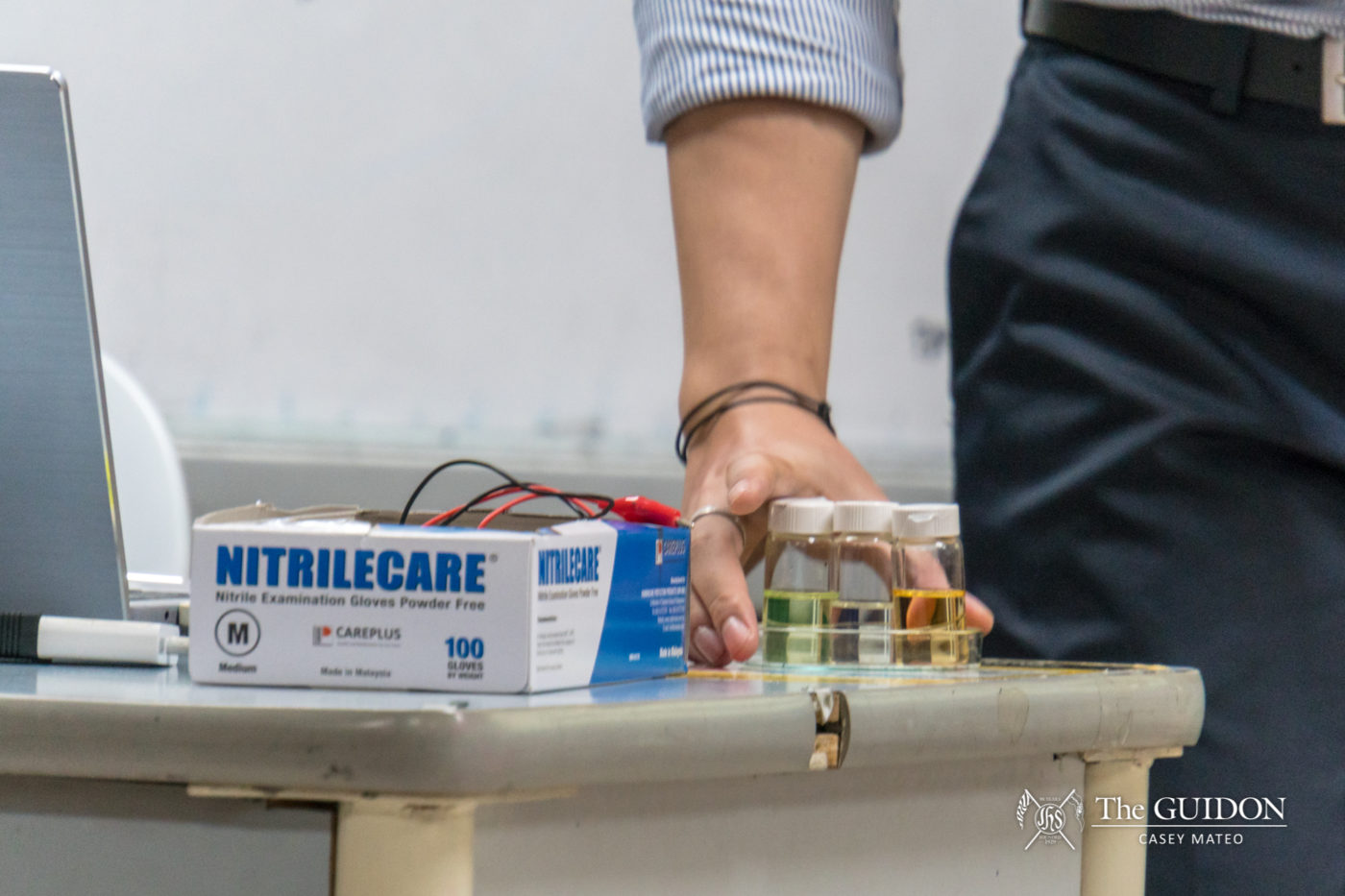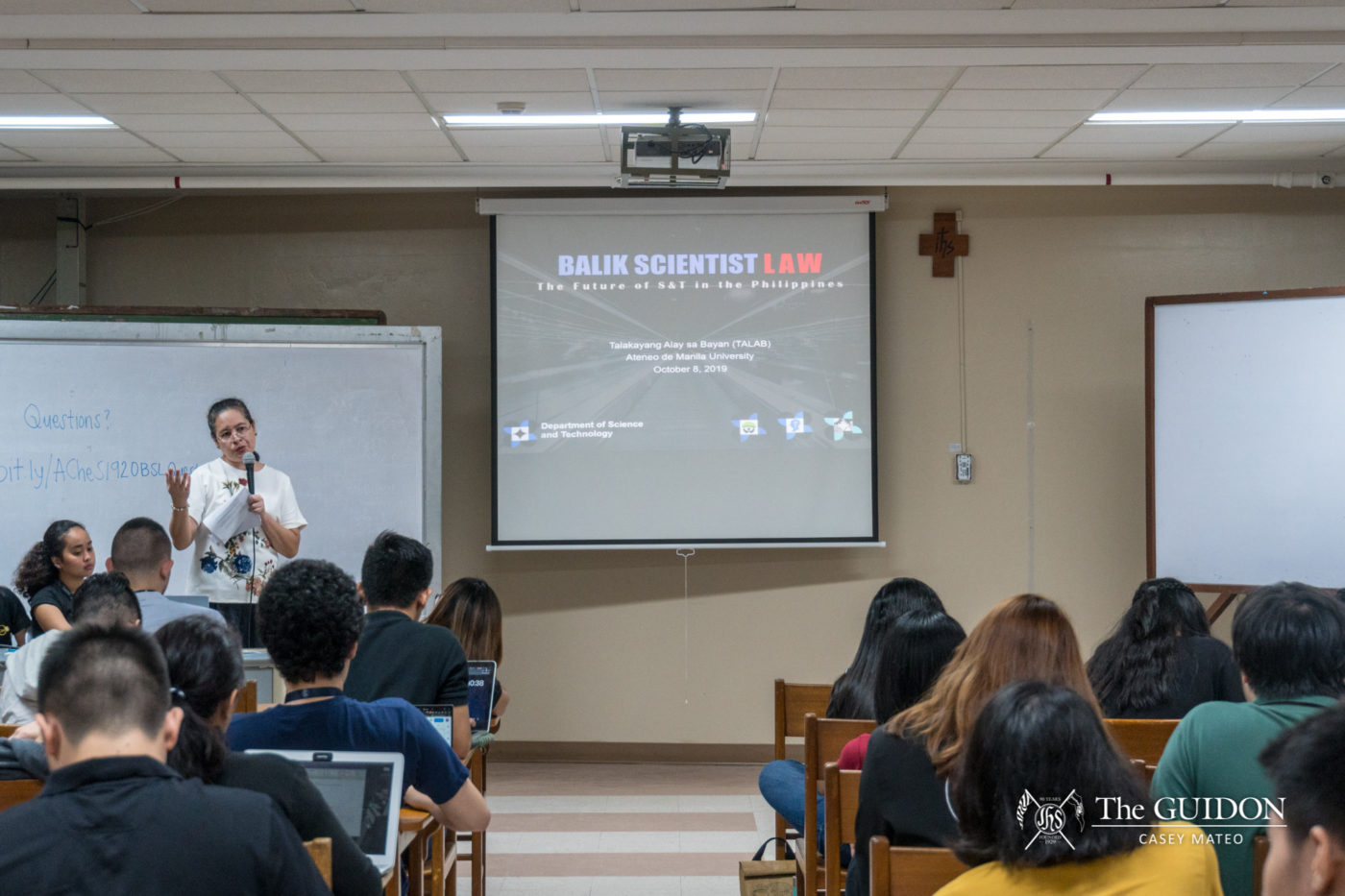PROFESSIONALS IN the field of science and technology shed light on the Balik Scientist Act enacted last year and its implications on the future of the Philippines’ science and technology sector on October 8 at CTC 102 as part of this school year’s Talakayang Alay sa Bayan. The event’s speakers were Department of Science and Technology (DOST) Assistant Secretary Maridon Sahagun and David So, PhD, a materials scientist who returned to the Philippines after working in the Los Alamos National Laboratory in New Mexico.
The talk, which was entitled “Balik Scientist Law: The Future of Science and Technology in the Philippines,” delved into the possible effects of having scientists that went abroad come back to the motherland—both on these professionals and several industries of the country, such as agriculture and economics.
Straight facts
According to Sahagun, the Balik Scientist Act strengthens the implementation of its namesake program, which was first established in 1975. The Balik Scientist Program aims to incentivize all Filipino scientists, professionals, or any person with a special skill set living abroad to come back to the motherland and share their expertise with a host institution. This entails providing them with tax-exempt daily allowance, round trip airfare, and funding for the establishment of research facilities, among many others.
“[The law’s main purpose] is to expand our flow of knowledge and leverage the capabilities of our institutions and institutions abroad,” said Sahagun.
Other objectives of the program include the acceleration of scientific discoveries and the reduction of the brain drain, which refers to cases where highly skilled individuals emigrate from their home country to another.
On the other hand, So spoke extensively of his experience as a recipient of the program’s benefits. Having pursued his doctorate degree in Spain to conduct further research in the field of nanotechnology, he came back to the Philippines just last year. He will only be staying in the country until next month and uses his remaining time to work on a project in the Ateneo. This involves the University’s toolbox of ink formulations to widen printer functionalities.
He also informed the audience that a lot of the faculty members in the University’s Chemistry Department are also balik scientists like him. “Without the Balik Scientist Law, a big chunk of the Department would not be there,” he said.
However, So claimed that not all scientists are convinced to return to the motherland to share their knowledge for reasons beyond their control.
Some causes he pinpointed included the lack of opportunities for scientists in the Philippines, changes in lifestyle preferences, and the absence of connections with a host institution.“Connections are a must, but it’s not something that everyone has,” he added.

Hard questions
One recurring concern raised during the open forum was the future of the science and technology sector in the Philippines, given the lack of job opportunities and government funding in research and development.
“[I admit] there are bigger national issues that need to be addressed before the administration can devote their attention to the sciences,” So said.
Despite this, Sahagun said she remains hopeful for the future of the sector due to “recent government efforts to help the field advance” like the Balik Scientist Act.
Sahagun also reiterated that the DOST is not averse to any field in both the hard and applied sciences.
“All fields have the potential to grow and contribute to the advancement of the country. To prioritize one over the other would be difficult,” she said. “We are willing to find ways for all scientists to pursue research, even if it means sending [them] abroad and helping them find connections there.”
“We appeal to our Filipino scientists because as Dr. So said, [the law] is a way of giving back,” Sahagun added.
What do you think about this story? Send your comments and suggestions here: tgdn.co/2ZqqodZ







